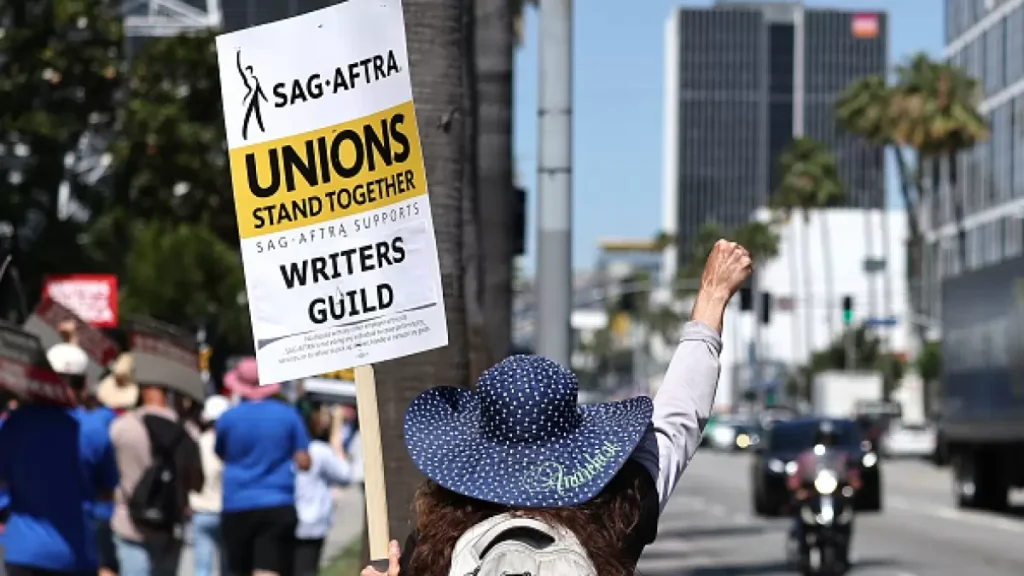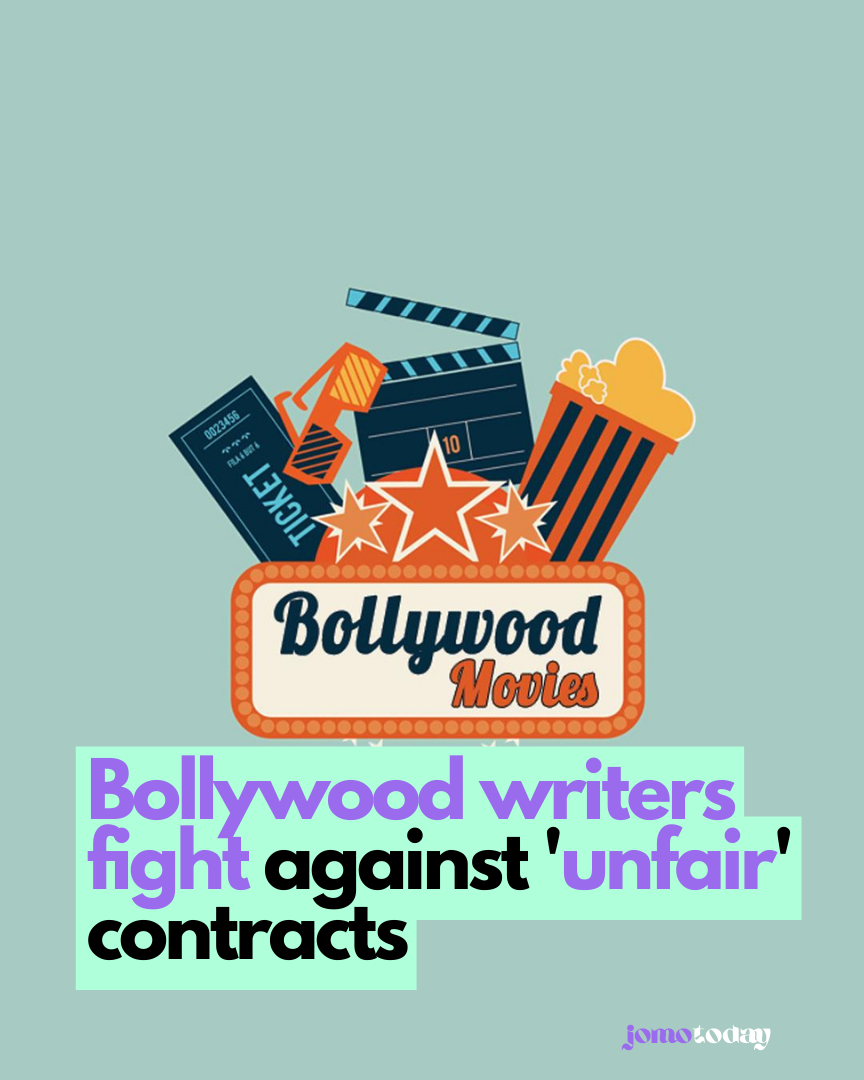Bollywood screenwriters are challenging ‘unfair’ contracts, seeking improved working conditions within one of the world’s major film industries.

Screenwriters in one of the world’s largest film industries say they want better working conditions.
Crafting scripts in Bollywood can be a solitary endeavor, often lacking in substantial returns for many writers. Unless they strike gold with a breakthrough project that garners recognition and success, financial stability and opportunities remain scarce.
The main hurdle, writers argue, lies in the restrictive contracts they’re required to sign, seemingly structured to safeguard the producer’s interests.
Anjum Rajabali, a senior figure at the Screenwriters Association (SWA) – India’s counterpart to the Writers Guild of America (WGA) – which boasts a membership of over 55,000, sheds light on the issue. “Contracts frequently feature vague termination clauses and offer minimal compensation, especially for newcomers,” he states. He highlights the absence of payment for revised drafts and the producer’s unilateral authority to determine a writer’s credit. Some contracts even prohibit writers from seeking union intervention during disputes with the producer.
While the SWA has long championed members’ rights, recent efforts have centered on addressing the perceived power imbalance between producers and writers.
In a gathering held last December, more than 100 writers, including prominent Bollywood names like Abbas Tyrewala and Sriram Raghavan, convened to discuss envisioned alterations to their contracts.
“Our current strategy involves engaging producers in collaborative discussions to reshape contracts, aiming for better compensation and some form of stability for writers,” Mr. Rajabali shares. He notes that “most producers acknowledge” the necessity for improved pay and a degree of job security for writers.
Last year’s successful resolution of a lengthy writers’ strike in the US has emboldened Indian screenwriters to assert their needs. Despite Hollywood’s standstill and the concessions it brought for writers, India’s movement remains in its early stages. Experts believe that a dramatic action like a strike is unlikely soon, partly due to industry dynamics valuing relationships for work opportunities and the substantial pool of aspiring talents.
Moreover, the system of contracts for writers is a relatively recent development in India. Until the mid-2000s, verbal agreements governed payments and negotiations for scripts, leading to irregular and uncertain compensation for writers. With the influx of corporate funding into studios, contracts became more prevalent. However, producers, aiming to maximize profits and mitigate financial risks, have made these contracts increasingly stringent and unfair, according to Mr. Rajabali.
He highlights a troubling clause emerging in contracts among producers, which demands that writers take responsibility for reimbursing any financial losses incurred by the producer due to controversies or protests surrounding a film.
This clause has surfaced due to a rise in situations where extremist factions have targeted movies for allegedly offending religious sentiments. Actions such as tearing down posters, vandalizing film sets, and lodging complaints against objectionable scenes or dialogues have prompted producers to take precautionary measures. Consequently, they’re now seeking legal approval for scripts. Mr. Rajabali contends that it’s unjust to expect writers to foot the bill for financial losses once their script has been purchased.
Screenwriters often express feeling vulnerable due to certain contractual clauses, which they believe impact their creativity. Hitesh Kewalya, a Mumbai-based screenwriter, recalls the hardships he faced before establishing himself in the industry. Having left his advertising job to pursue scriptwriting, he struggled financially, even after creating seven movie scripts that never materialized into films or paid him.
According to Kewalya, the situation remains challenging for today’s writers, leading many to leave the industry due to financial instability. However, there’s a glimmer of hope as some producers, like Nikhil Taneja from Yuvaa, have started implementing fairer remuneration practices. Taneja ensures that writers’ fees correspond to the project’s scale, adjusting them if the project’s budget increases—a rare practice in the entertainment world.
Taneja acknowledges the exploitative nature of writers’ contracts but attributes it to the unpredictable nature of filmmaking. He points out the significant financial risk producers undertake, emphasizing that while they reap profits from successful films, they also bear the losses when projects fail.
The proliferation of streaming platforms has added another layer of difficulty for films to gain visibility and success. Additionally, the collaborative nature of filmmaking, where scripts often undergo substantial changes during shooting and editing, contributes to delayed payments for writers.
Despite these challenges, Taneja believes writers, as the foundation of a film, deserve better treatment and advocates for industry-wide recognition of their rights. He insists that change will only occur when writers unite and demand fair treatment.
Meanwhile, Mr. Rajabali states that the SWA (Screenwriters Association) will persist in advocating for writers’ rights, including securing a minimum basic fee, proper credit, and removing exploitative clauses from contracts.
In essence, the journey to achieving fair treatment for writers in the industry may be arduous, but their resilience and determination are driving forces in this ongoing battle.
Read More: JS: The iconic magazine which ‘invented’ the Indian teenager






Leave a Comment